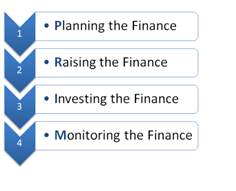MBA, or Masters of Business Administration, is a very heavy word in today’s world. If you hear about someone who has an MBA, your brain automatically pictures heaps of money, Friday nights at pubs, 3-piece suits and tuxedos, and all other fancy things that you can think of. Everyone has their own reasons for doing an MBA, which can ultimately be traced back to one single point.
“Jab bhi is desh ke graduates apne 9 to 5 job se bore ho jaate hain.. toh bahar nikalne ke liye wo teen hi raste sochte hain … MBA, IAS or Startups”
Don’t judge me; I did not come up with that line. It was in PITCHERS, a TVF web series. (If you have not watched it, I would definitely recommend it.)
If you are not from UP, Haryana or Bihar, you can safely say goodbye to IAS. If you couldn't even sell a pen in your Engineering placements, you can say goodbye to any lingering startup dreams also. So what we are left is with MBA. This is the safest amongst the lot. Neither do you need to study for 19 hours a day and remember what the name of Bahadur Shah Zafar’s grandson was, nor do you have to think of a truly new innovative idea to sell and wait 5 years to break even or break down because you couldn't break even.
That is exactly why more than 2 lakh people attend the CAT exam and, still, in 99% motivational videos, every coaching institute will say only 20% of the 2 lakh candidates are actually serious at the last phase. Because after all it’s an exam, and we as Indians would not miss a chance to sit for an exam.
But this article is for people who are actually interested in MBA, regardless of whether it is because of the money, or the frustrating boss, or the guilt of missing out on a premier institute on his/her CV. An MBA can be daunting and can be nothing less than a roller coaster ride. It is even more frightening if you haven’t done your background research. It is highly imperative to know about the different aspects of MBA and an answer to the following questions:

Why MBA? (Read why current mba student are doing?)
What specializations?
Which Schools?
ROI?
I am not answering the first question, of course, because it is highly personal. It cannot be generalized and requires a great deal of introspection of oneself. ROI of b- schools is an easier topic to research and can be found out with few clicks of the mouse. So I decided to talk about the different areas of specialization. Facing an interview panel without knowing which specialization you would want to graduate in MBA would push you down the competitive list. Rather, if you have a pretty comprehensive knowledge about the different specializations, not only would you make a good impression but you can steer the interview to your area of liking too. So this would be a brief attempt at understanding the different specializations.
An MBA caters to different types of job profiles across the industry sector. But to date, mainly there are 5 different verticals of Management on which the corporate world balances itself. Even though there are more specialized MBA’s gaining importance these days, the most important specializations are as follows:
- Consulting
- Finance
- Marketing
- Operations
- Human resource
Others such as IT systems, International Business, Rural Management, and Business Analytics have gained enough prominence and hence different schools have started offering these programs.
Consulting:
Consulting is an interesting specialization to do. Consultants are usually problem solvers. The services of a Consultant, as the name suggests, are used to consult when a corporate firm has a problem to be fixed, or a specific target it is not being able to reach. A management consultant can itself be a superset and encompass strategic consulting, IT consulting, technology consulting, marketing consultants and so on. Consultants are knowledgeable, have industry experience, best practices across various spectra, problem solvers and effective communicators. Management consultants help organizations to solve issues, create value, maximize growth and improve business performance. They use their business skills to provide objective advice and expertise and help an organization to develop any specialist skills that it may be lacking.
Let us take a classic example to understand consulting:
Once there was a company ABC, which used to manufacture toothpaste. ABC has been receiving complaints from their customers (or retailers) that some of the toothpaste tube boxes that were displayed in the retail stores were empty. So the CEO bought some high-end German equipment to find out the problem. The equipment worked perfectly and the problem was solved. But later it was found out that due to the new equipment, cost profits have dipped as much as 30% of the previous figures, and the company called in a Consultant to solve the problem. The Consultant went to the factory that manufactures the toothpaste. He went near the area where toothpaste bars are kept inside a box. Just next to that, he placed a desk fan. This way, when an empty box came through, it would blow away. Though it was a simple idea, it saved millions for the ABC Company and the customers also became happy.
This is what is expected of a Business Consultant. A Consultant should always think of the best solution possible. Usually, a single Consultant will not work on a problem. Instead, a group of 4 or 5 people work together.
Institutes you can look at if you are interested in Consulting: IIM A, IIM B, IIM C, FMS, IIM Indore, XLRI.
Finance:
Generally, people who love Mathematics opt for this specialization. Finance is nothing but the representation of the business through numbers and figures. It involves the financial resources of an industry. Finance as a subject involves the management, control and review of the collection, investment and resources of money as a capital required for an industrial building, plant and working. An MBA in finance comprises of the following further divisions:
- Investment Banking: An Investment Bank is not similar to a bank where you store your belongings such as money, gold etc. As a customer, you can invest your money in different equities through the Investment Bank. Investment bank aims to provide the best possible advice to their clientèle. This ensures that the client is able to gain maximum value from the transaction as well as turn into a recurring business relationship for the bank. Investment Banks allow firms access to the capital markets, and they do this by helping firms raise shares (or variants of equity or debt) or by advising them on strategic financial decisions (such as mergers, acquisitions etc).
- Corporate Finance
Corporate finance deals with managing the financial commitments and obligations of a corporate entity and to increase the value of the corporate entity.
- Risk Management
Simply put, risk management is a two-step process - determining what risks exist in an investment and then handling those risks in a way best-suited to your investment objectives. Risk management occurs everywhere in the financial world.
Institutes you can look at if you are interested in Finance: IIMs BLACKI, XLRI, JBIMS, SPJIMR, MDI, IIFT
Sales & Marketing:
An organization consists of different wings in order to fly and conquer the market as a leader. One such wing which is visible to the external world is S&M (sales & marketing). These are two completely different entities; evidently one is Sales and the other is Marketing. But, these are interdependent.
Sales:
This is the revenue generating unit in the organization. It sells either the products or the services that are developed and served in the organization. They make money and give it to other blocks of the organization to play in the market.
Marketing:
This is the unit which builds the BRAND of any organization. Marketing is not just advertising, as opposed to popular belief. It also involves pricing, targeting right customers, strategies to build right brand elements (brand image, brand identity, brand value, brand strength etc.). All the activities and strategies are focused to build the brand. It will be associated with different agencies like ad agencies, ATL (above the line like TV, radio and other broadcasting ads) and BTL (Below the line like campaigns, contests, CSR) activity handling companies. There are a lot of strategies involved in the execution. Executing strategies is the challenge in Marketing (you never know what would be the result of any marketing activity unless it improves the above-mentioned brand elements).
The relation between Sales & Marketing:
Even though Marketing builds the brand, it acts as a support role for Sales. All Marketing activities are indirectly done to improve the sales. A good Marketing firm will pull the customers rather than pushing. The right customers are targeted through Marketing and then the Sales team sells to those targeted customers. They are interdependent. All the marketing activities should result in the Sales growth. Hence, the Sales department is the front-end and Marketing is the back-end support to the Sales team.
Institutes you can look at if you are interested in Marketing: FMS, IIMs BLACKI, MDI, SPJIMR, IMT G
Operations:
Operations is, again, a huge field. Any day-to-day activity comes under Operations. It can be IT operations, e-commerce etc. Most of the people do specialization in Supply Chain Management. It involves designing and managing activities that deliver products and services to your customers. It also involves boosting production, managing material and resources, and any operational activity for the better profitability of the company.

A Classical example of JIT by Toyota:
Toyota is supposed to be a poster of JIT success or just in time lean manufacturing method. The production strategy taken up by Toyota was such that the raw material was not brought to the manufacturing plant until and unless the time when it was required for the production phase. For eg. Tires were only brought from suppliers when it was needed on the assembly line. This had an immediate effect on the production increase, reduction in inventory costs, reduction in labour cost and ultimately resulted in a higher profit.
Institutes you can look at if you are interested in Operations: NITIE, SPJIMR, IIM C, SJMSOM, VGSoM, IIM L, IIM A.
Human Resource:
MBA in HR Management is for those who want to know more about HR functions and strategies and become a part of it. The HR functions include workforce diversity management, mergers and acquisitions, managing demand and supply of labour markets in emerging Economics and international leadership
Key Functions of HRM:
-Recruitment and Training
-Performance Appraisals
-Employee Engagement
-Employee Development
-Managing Disputes, etc.
Institutes you can look at if you are interested in HRM: XLRI, TISS
Overall this is a very short overview of the different management specializations offered by specific colleges. It would be beneficial for the aspirant to research more on the other different categories of specializations such as IT and systems and also gain more insight into these 5 main specializations according to his/her choice.
In general, the IIM’s provide with a general degree of management which offers us to choose 2 different electives after the first year, contrary to several high profile colleges which gives admission to aspirants based on the programs they are interested in.
As Benjamin Franklin had once said, “If you fail to plan, you plan to fail”. So it would be beneficial to assume that the more you are well versed with the different aspects of an MBA, the better are your chances to make a successful career in them.
If you have any opinions or suggestions, please let me know in the comments below.
